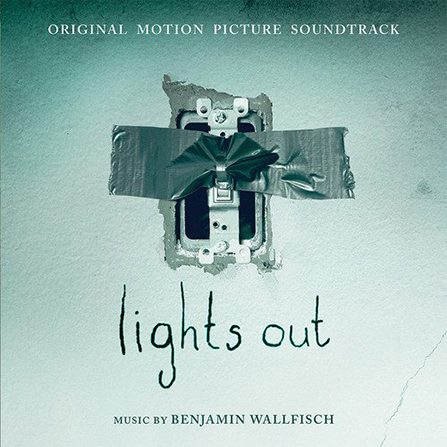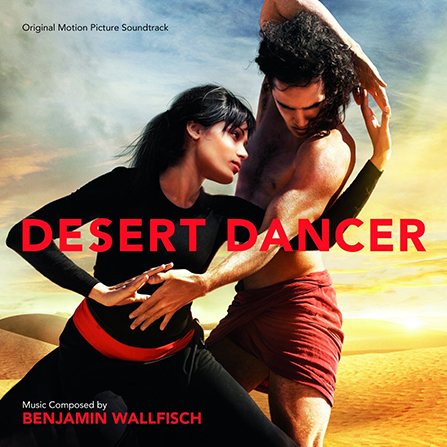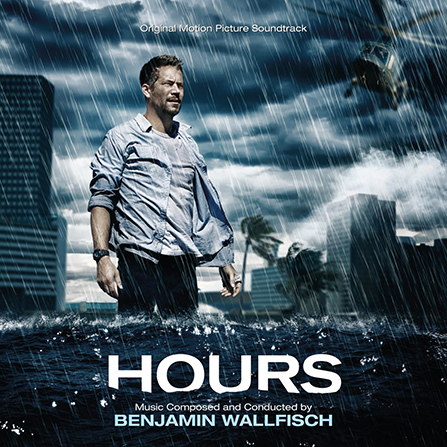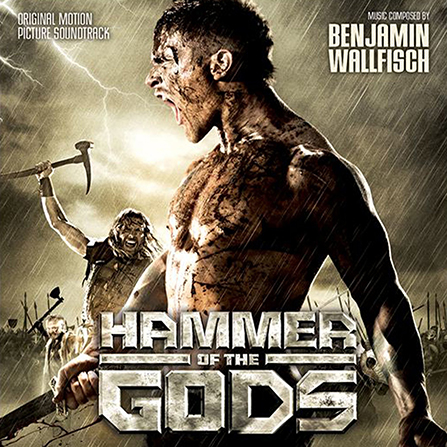Interview - Lights out : Let's talk with Benjamin Wallfisch
By Mulder, Los Angeles, 30 july 2016

Q: hello Benjamin, Please can you make A short presentation for our french audience ?
Benjamin Wallfisch : Thanks so much for inviting me!
Q: You have been an orchestrator And/or conductor on so amazing films as Pride & Prejudice (2005), V for Vendetta (2005), The brave one (2007), Robin Hood (2010). Could you Tell us more about This work of in The Hollywood system? What did you learn to work on these films?
Benjamin Wallfisch : It’s so important to have mentors when you’re starting out in any industry, and that’s particularly true in the world of film music. When I was starting out in my early twnties, Dario Marianelli was in that role. I assisted him for around seven years as his orchestrator whilst I was getting my early breaks as a film composer and learnt a huge amount from him, and also the incredible musicians we regularly collaborated with. It was a wonderful when Dario’s score for Atonement won the Academy Award for Best Original Score - it was such a collaborative experience with some incredible performances by Jean-Yves Thibaudet and the musicians of the English Chamber Orchestra. I was honored to have been a part of that.

Q: As A composer you have worked on films as Dear Wendy (2004), Hours (2013), Hammer of The gods (2013) until recently Lights out (2016). How do you choose your projects?
Benjamin Wallfisch : I’m drawn to anything with a strong story, whatever the genre and am grateful to have built some really strong relationships with a group of incredible film-makers over the last few years. The movies I work on are mostly driven by what they have in their imagination. HOURS led to my collaboration with David Sandberg on LIGHTS OUT, and the upcoming movie ANNABELLE 2, and I’m particularly honored to have recently scored Gore Verbinski’s new movie A CURE FOR WELLNESS.
Q: For you, why music is so important for you in a film?
Benjamin Wallfisch : Music is an integral part of the human experience - it is a sonic distillation of human emotion. Equally important to the human experience is storytelling - that goes back to the earliest civilizations. So there is kind of an inevitability that music and visual storytelling can be at one with each other. We have a big responsibility as film composers to write with total honesty to the story, the characters, the emotional impact the director is trying to create. Without that honesty it’s easy to break the implicit relationship between the film maker and the audience. As a composer you play an important role in creating the world the audience experiences - and in particular the shades of emotion they might experience. Being fully aware of that responsibility is all important. Storytelling and character is all.
Q: I have the luck to see recently Lights out. It was a great horror film with a great score. In The most frightening scenes your music was so intensive. How did you found This great approach?
Benjamin Wallfisch : It was a very collaborative experience between the director David Sandberg and myself. The approach was all about being driven by what the narrative needed at that time.

Q: What can you say about your collaboration with The director David F Sandberg on This film? How did you create This score and where did you Record It ?
Benjamin Wallfisch : We recorded it in LA with the wonderful musicians of the Hollywood Studio Symphony. Early on, David and I discussed how we wanted to go about bringing the subtext of and emotional family drama to the fore of the score, in the context of a high adrenaline horror movie. There is a strong “mother/daughter” theme where I went about capturing the complex dynamic between them with a melody that can never quite find its home. Also the monster, Diana, has a motif, (one) that is the stuff of nightmares. It’s kind of like a demented lullaby, an obsessive tune that almost closes in on itself. The movie delivers both raw scares and a powerful story with an unwavering sense of integrity to the characters. The scares are always earned and there’s often a playful glint in the filmmakers’ eye.

Q: What kind of advice could you give to someone who would like to work as a musical composer?
Benjamin Wallfisch : Write the best music you are capable of, every day. Like any craft, you just get better and better with practice, and getting into the daily habit of creating music, even if it’s 3 or 4 minutes of an experiment completely away from picture, you hone your craft and keep falling in love with the process. Also, study and listen daily to the work of the great masters - Bach, Stravinsky, Shostakovich, Mahler, Wagner, Beethoven, Miles Davis, John Williams, Hans Zimmer, the list goes on and on - and if possible get into the habit of following scores whenever you listen to a score. There is so much you can learn on the page. Also, befriend as many musicians as you can. They are the people who bring your music to life. You can learn just as much from musicians as you can from other composers. Above all, as my late grandfather, the incredible pianist Peter Wallfisch, always said to me - treat music as a living thing, with respect and love.


